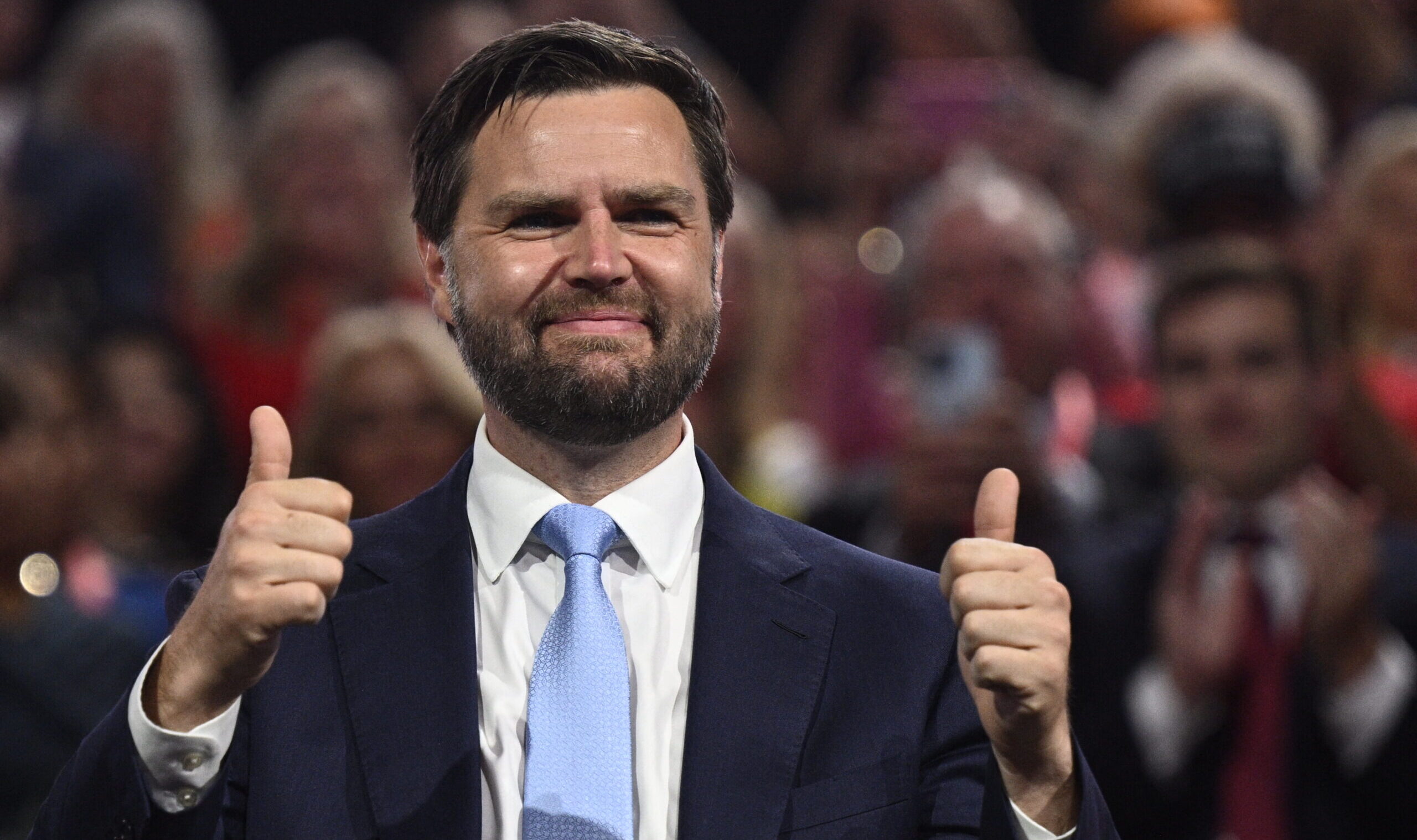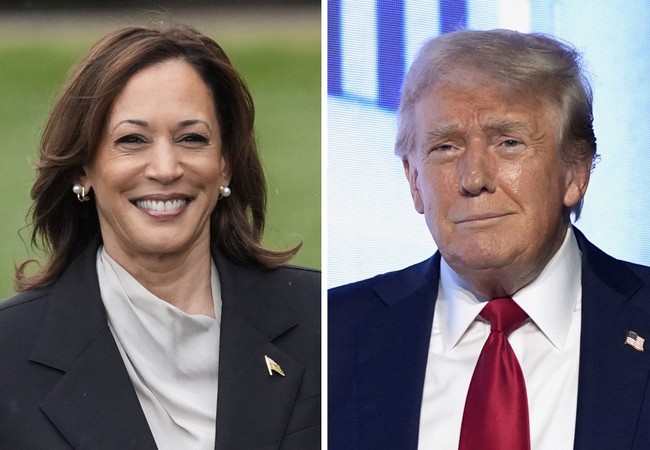
This article was originally published on American Conservative. You can read the original article HERE

“In a private session Tuesday with the International Republican Institute, an internationalist group founded in the Reagan era, [Mitch] McConnell walked attendees through history, reminding them that the party has long had brushes with isolationism,” POLITICO reported, adding that McConnell “cited one of Vance’s Ohio Senate predecessors, Robert A. Taft, as an illustration of how powerful the currents had been in the World War II era.”
This was but one of the many reactions to J.D. Vance’s rise to the GOP’s vice presidential nomination. Others ranged from denial, to fear, desperation, and acceptance. But one cannot think of a time, since the inception of this particular publication at least, that foreign policy realists in the U.S. were so excited about a nominee.
James David Vance, a former Marine, Yale Law graduate, venture capitalist, author, and junior senator from Ohio, is many things, but “isolationist” he is not. The word has lost all meaning in current usage anyway—one cannot be a true isolationist, nor was the U.S. (or in an earlier era, Britain) ever an isolationist power—but even accepting that rhetorical incoherence, Vance isn’t one.
Vance has, in various times, supported a strong military response in Latin America against drug cartels and human traffickers. He has been steadfast in his support for Israel, and in fact has painstakingly tried to explain why the Israeli and Ukrainian causes aren’t the same. In that way, he is somewhat of a true heir of Robert Taft, who was bothered about European freeriding and permanent alliances, but was more supportive of defending American primacy in its own hemisphere and adjacent in East Asia. Needless to say, despite whig historiography, Taft wasn’t an “isolationist” either. He could be cautiously classified as an Asia-Firster, a default position for a significant generation of GOP realists in the immediate aftermath of the Second World War, albeit for different reasons, ranging from the ideological to the material.
Vance, however, is set apart from the last quarter century of Republican foreign policy. He understands that a permanent alliance in Europe (or permanent alliances anywhere) isn’t beneficial to the U.S. and has helped the richest continent, Asia, free-ride for a long time. Second, Americans are being taken advantage of, especially in matters related to defending foreign borders in faraway lands like Ukraine despite America’s own broken southern border. Finally, as a result of the freeriding, America faces insolvency and collapse if there ever is a conflict in Asia—a conflict that, by all measurable metrics, could dwarf a conflict over Europe. One could argue with the details, but the logic is sound.
Consider Vance, in his own words, in perhaps his most important foreign policy contribution so far, a speech at the Munich Security Conference. “I offer this in the spirit of friendship, not in the spirit of criticism, because, no, I don’t think that we should pull out of NATO, and no, I don’t think that we should abandon Europe. But yes, I think that we should pivot. The United States has to focus more on East Asia. That is going to be the future of American foreign policy for the next 40 years, and Europe has to wake up to that fact,” Vance said. “I think that the American security blanket has allowed European security to atrophy.”
In short, keep the American nuclear and naval umbrella as a deterrence of last resort and a guarantor against nuclear proliferation, but coerce Europeans to shoulder European security otherwise.
Vance remained critical while elaborating his position in an op-ed for the Financial Times. “The United States has provided a blanket of security to Europe for far too long. In the aftermath of the cold war, European nations made deep and lasting cuts to their defence budgets,” Vance wrote. On Ukraine, he argued that “revealed preferences” show European trepidation in defending its own continent, and therefore Europe shouldn’t look to the U.S. as a hegemonic protector. “There is frankly no good reason that aid from the U.S. should be needed. Europe is made up of many great nations with productive economies. They ought to have the capacity to handle the conflict, but over decades they have become far too weak. America has been asked to fill the void at tremendous expense to its own citizens.”
These are not idle talking points. A president often doesn’t get to leave too many lasting foreign policy legacies in multiple theaters. President George W. Bush's legacy was failed wars in the Middle East. President Barack Obama’s legacy was a continuation of Bush’s. President Donald Trump wanted to retrench partially from Europe and withdraw from Afghanistan, but was beset with various internal resistance to his governance. President Joe Biden’s entire tenure will be known for a long proxy war in the backend of Europe.
But a renewed security architecture in Europe is perhaps the most achievable goal for a potential Trump/Vance administration, a legacy that Vance could carry forward during his own future run for the office. In short, Trump and Vance will be able to shape America’s Europe strategy for decades to come. As Vance wrote, “U.S. leaders across the spectrum support Europe and see the value of generations-old alliances. But as we watch European power atrophy under an American protectorate, it is reasonable to ask whether our support has made it easier for Europe to ignore its own security.”
Subscribe Today
Get daily emails in your inbox
Incidentally, this might remind historians of Robert Taft’s own words. Explaining the folly of permanent alliances, Taft wrote that America’s grand strategy was never “isolationist” per se, but has always been about avoiding permanent alliances and “interference in foreign quarrels,” as such an approach theoretically leaves the U.S. “free to interfere or not interfere according to whether we consider the case of sufficiently vital interest to the liberty of this country. It was the policy of the free hand.”
Accordingly, American strategy towards Europe should be based on realism. Taft continues: “I believe that any obligation to use force in Europe should only be secondary, not to be effective until the peace-loving nations of Europe have exhausted their own resources. This is in accord with Mr. Churchill’s suggestion of a Council of Europe under the Association of Nations. We cannot help solve the problems of Europe unless the great majority of the European nations first agree on what that solution should be.”
J.D. Vance will not be able to do everything all at once; no man can. It is not humanly possible for a vice president to help shape the entire grand strategy of a great power in all theaters across the globe. But he will be the final advisor to the president. And his position on trade-offs in Europe will in turn shape the country’s position regarding competition with China, or the Mexican border. If he trusts his own instincts, he would be the architect of his own long-lasting legacy on burden-shifting to Europe, and will have his name etched in history.
This article was originally published by American Conservative. We only curate news from sources that align with the core values of our intended conservative audience. If you like the news you read here we encourage you to utilize the original sources for even more great news and opinions you can trust!










Comments